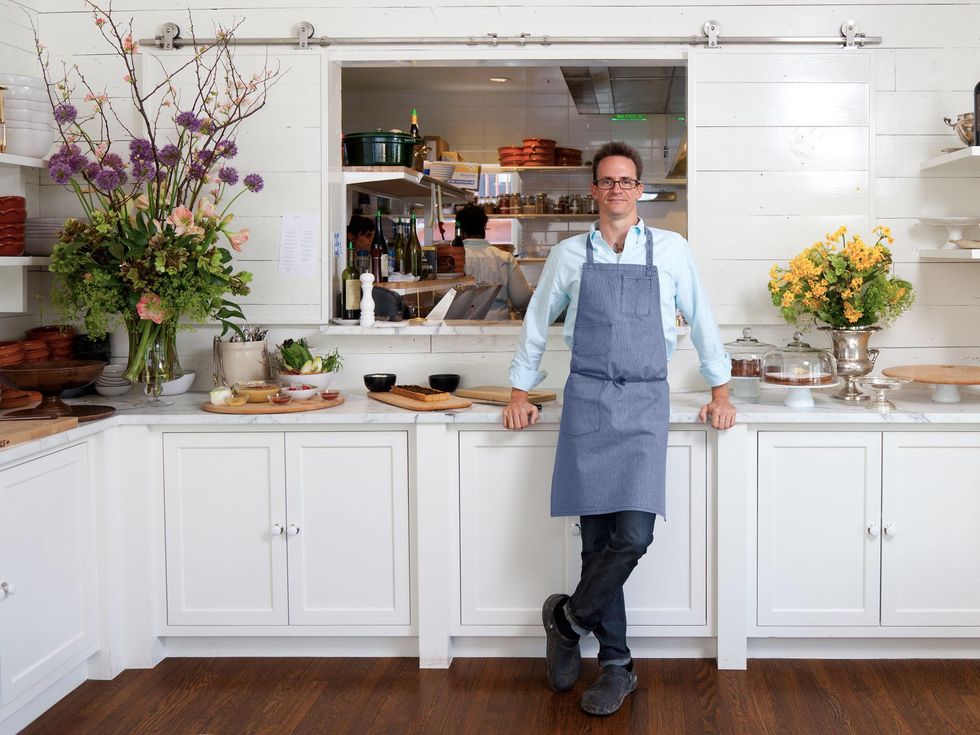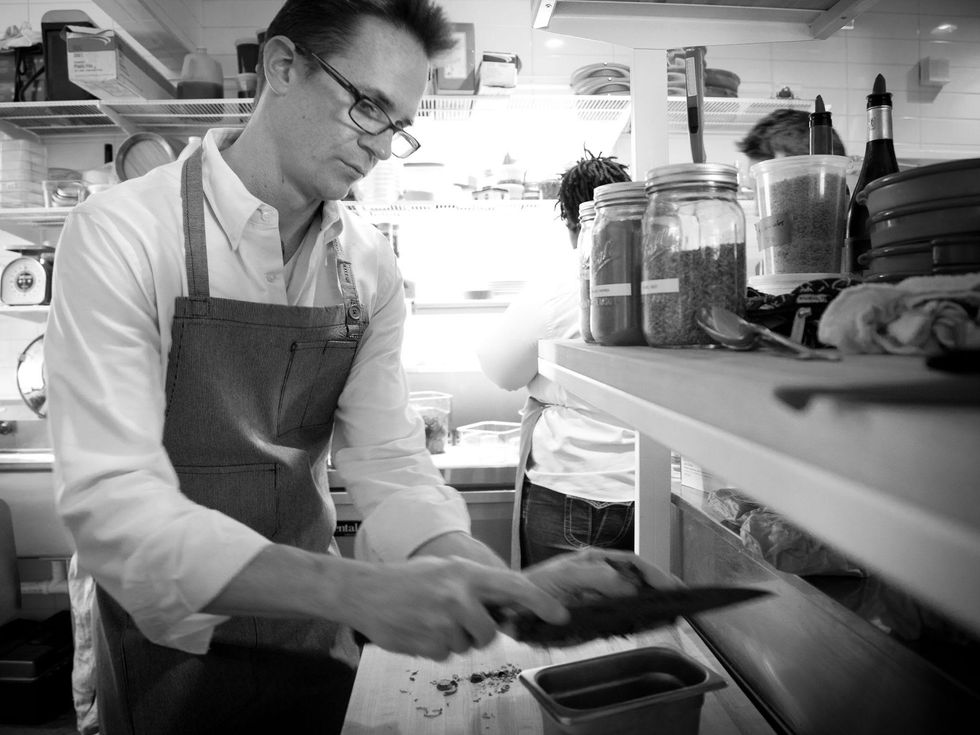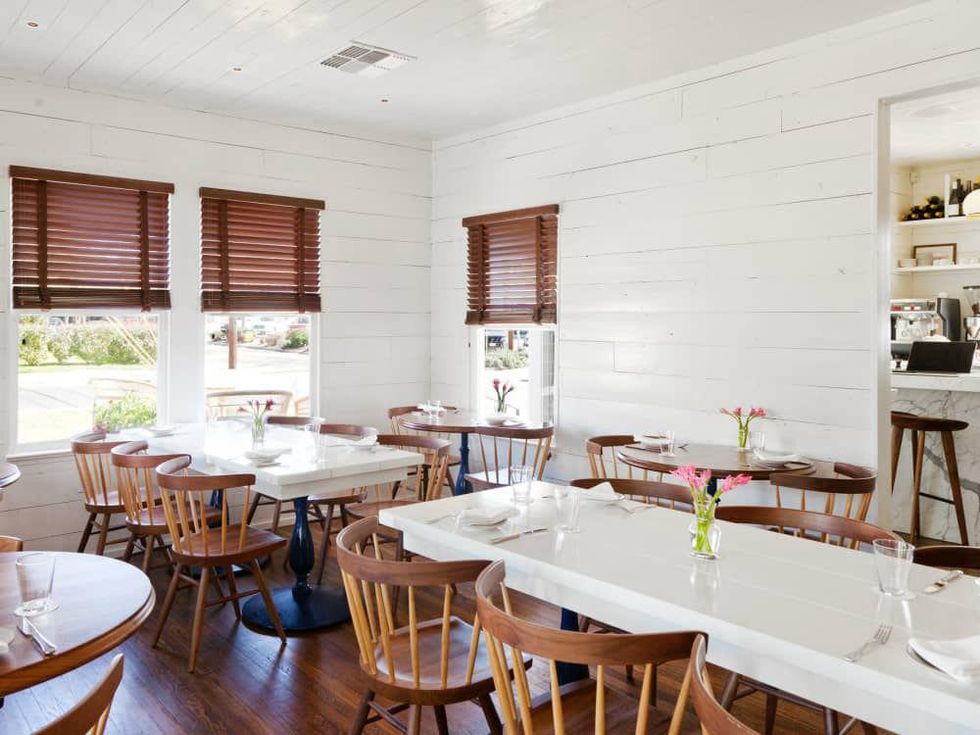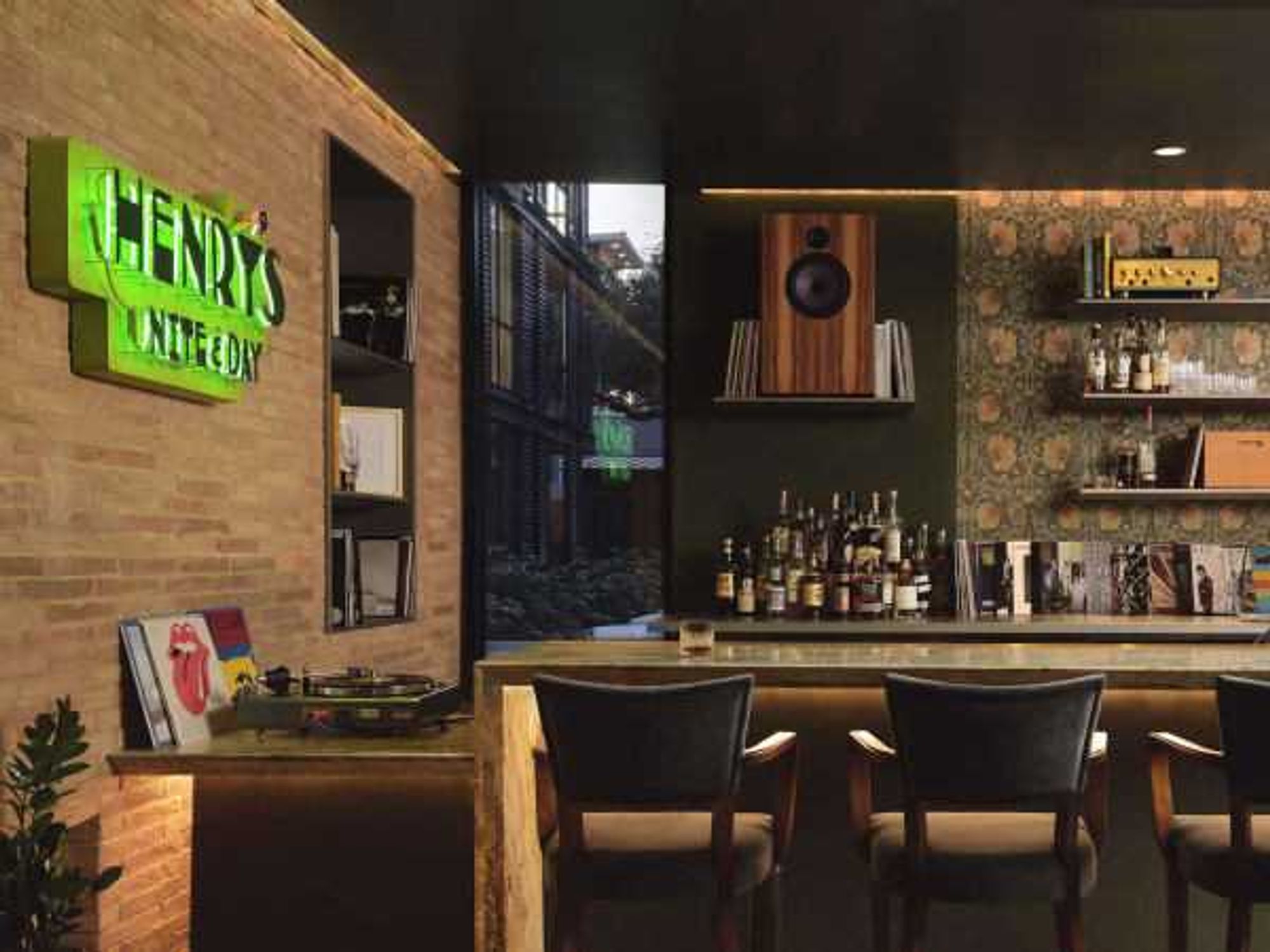The Life of a Chef
Chef de Cuisine Josh Hines on staying connected, working the line shift & leading by example

Josh Hines, the chef de cuisine at new hotspot Clark’s Oyster Bar, is a self-taught wunderkind who grew up in Kentucky and has a penchant for Southern food. He loves cooking and thinking about food, but how much time does he really spend in the kitchen?
We recently caught up with Hines to find out what a typical day is like for him. Here’s what the chef de cuisine of the soon-to-open Jeffrey's had to say about checking for surprises, resolving conflicts and working the line shift.
CultureMap: What is the first thing you do in the morning? How does the rest of your morning work?
Josh Hines: I get up around eight, and I immediately check emails — four different accounts so there’s always info from the night before. All of our chefs and restaurants stay well connected. I try to squeeze a ride in at least three times a week, but that’s easier said than done in most cases.
CM: What time do you arrive at the restaurant? What happens in the first hour upon your arrival?
JH: I’m into the restaurant shortly thereafter and have a cup of coffee, stat! I make sure I say hello to all of my cooks — make sure they’re happy, healthy and ready to work.
CM: Then what?
JH: Touch all of the product that I will need for that day, make sure appliances are all running well and check for any surprises that might be waiting.
CM: What is it like to work with so many different types of people?
JH: Every day there is some kind of drama. Many of the people who work for us are here under less than ideal circumstances. I make sure everyone is accounted for. There are always conflicts to be resolved. It’s a challenge but I enjoy it. You have to be a bit of a snake oil salesman to do well in a kitchen.
CM: What happens right before dinner service? How do you prepare? How do you get the kitchen ready?
JH: “Are you prepared for success?” is what I ask my cooks. “Do have one of everything and where are your backups? If you had one prep wish, what would it be?” Most of the people I hire are professionals — we’ve all been through busy nights of service. I always anticipate the worst.
CM: Walk us through a typical night at the restaurant, from serving those first few tables and being slammed to cleaning up and shutting down. Are there rituals?
JH: It’s my job to “drive the bus.” I have to know what everyone is doing at all times. If my grill guy is hungover, I have to adjust the pick-up times on everyone else’s ticket. If there’s a show later, I have to know that our clientele wants to eat quickly. I have to make sure all my cooks are having a good time as well — happy cooks make delicious food! Shutting down and cleaning up is the most robotic ballet ever done the same way every night, fueled by kitchen beers and the desire to get the hell out.
CM: Do you go out afterwards? When do you eat dinner?
JH: I don’t normally eat until after service. Overexposure is quite a diet aid.
CM: How many days a week do you work? What are your typical hours?
JH: I try to work five days and sixty hours — that’s the minimum I expect from myself, though opening so many new spots has increased that by a bit.
CM: How has technology changed your job?
JH: I try to give myself one day where I won’t do anything work related but it’s hard. I love this business, and it’s become such a part of my life I’m constantly thinking about food, service, ways to cut costs, menu ideas, you name it.
CM: What is the best moment of your day? The worst?
JH: The best moment is when you hear the printer for the last time after rocking out an amazing service. The worst is when you hear the same printer for the last time after a bad night, and you know you have one more opportunity to screw it up.
CM: Is there a time during the day when you want to throw your hands up?
JH: More than one.
CM: How do you communicate with your staff?
JH: I’m not a screamer. I prefer to lead by example and give people responsibility. Sometimes disappointing someone you respect is motivation beyond words.
CM: How much time do you spend in the kitchen actually cooking? Can you tell us a dish you like to make and what it involves as far as prep time and cook time?
I still work as many line shifts as I can. I don’t like being a chef who never touches food or fire; I need that contact and camaraderie with my staff. I’ve always felt a huge satisfaction when I pull off a perfect braise. A lot of people think it’s an easy dish — just throw it in the oven and wait till it falls apart. But a braise that has been perfectly cooked and cared for is never dry, always flavorful and absolutely beautiful.
CM: Do you ever have a moment when you think it couldn’t be any better? Or worse?
JH: It’s a hard business. I rarely feel like it can’t get better, aside from lotto daydreams. I am my own critic and hard on myself. I think most of the food I make can always be better; I can always work a little harder — that daily improvement is a necessity. My brain rarely shuts these thoughts off.
CM: Do you ever go to the market? To farms? Is that part of an average day?
JH: I try to hit the market on the weekend. Honestly, it’s more effective for me to buy from foragers and farm-to-table purveyors. They’re much better at it than I am, though I would love to walk through a farm every morning and pick my menu.





 Not everything at Green Pastures is fancy.Photo by Jessica Stephens
Not everything at Green Pastures is fancy.Photo by Jessica Stephens The guest rooms keep things simple and serene.Photo by Casey Dunn
The guest rooms keep things simple and serene.Photo by Casey Dunn The new addition looks nothing like the Victorian farmhouse it accompanies.Photo by Casey Dunn
The new addition looks nothing like the Victorian farmhouse it accompanies.Photo by Casey Dunn